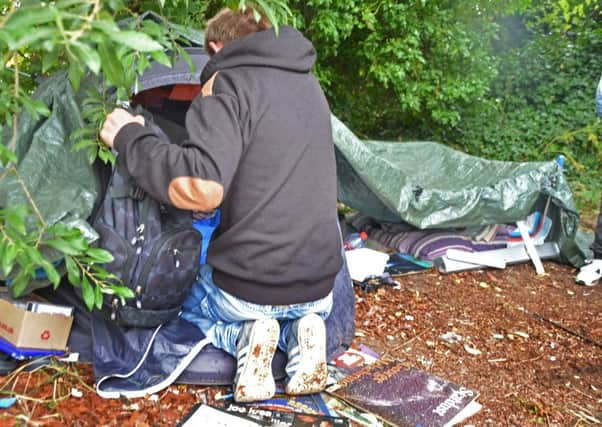SUELLA FERNANDES MP: '˜One person living on the streets is one too many'


Many people in Fareham have contacted me, concerned about seeing more people rough sleeping in the area, near the shopping centre and multi-storey carpark.
It is simply unacceptable that in Fareham there are people living on the streets – this is why I’m supporting the Homelessness Reduction Bill.
Advertisement
Hide AdAdvertisement
Hide AdIntervention and support shouldn’t only be delivered when people are at crisis point, we need to ensure that people at risk of homelessness or rough sleeping are identified and receive proper support to help get them back on their feet.
The Bill will significantly reform England’s homelessness legislation, making sure more people get the help they need to prevent them from becoming homelessness in the first place.
The Bill would place on councils a legal duty to support people at risk of homelessness much earlier on, 56 days before they are threatened with homelessness instead of 28 days and ensures that those who find themselves homeless are given support for a further period of 56 days, to help to secure accommodation.
The new legislation will also ensure that other local services refer those either homeless or at risk of being homeless to local authority housing teams.
Advertisement
Hide AdAdvertisement
Hide AdThe government has done fantastic work in getting the number of homeless people, investing £500m since 2010 into homelessness prevention schemes which have helped to prevent or relieve over one million cases of homelessness.
But recent statistics show that rough sleeping is on the rise across much of the country.
On any one night 3,569 people are sleeping rough in England according to statistics from the Department of Communities and Local Government, up 30 per cent compared to the number recorded in 2014 and over double the number recorded in 2010.
Rough sleepers are more likely to require specialist support with around 78 per cent having one or more support needs, including complex mental and physical health issues and substance addictions.
Advertisement
Hide AdAdvertisement
Hide AdAccording to research by Crisis, a homeless charity, 31 per cent of rough sleepers have drug addictions, 32 per cent have been in prison at some point, 41 per cent of rough sleepers have alcohol problems and 45 per cent have mental health issues.
Without properly addressing the reasons why people end up rough sleeping, or homeless, the problem is only going to get worse.
There have been some promising signs from the government – on October 17 the government announced a £40m homelessness prevention programme, an innovative approach to tackling homelessness and rough sleeping that seeks to tackle the reasons why people end up in ‘rough sleeping cycles’.